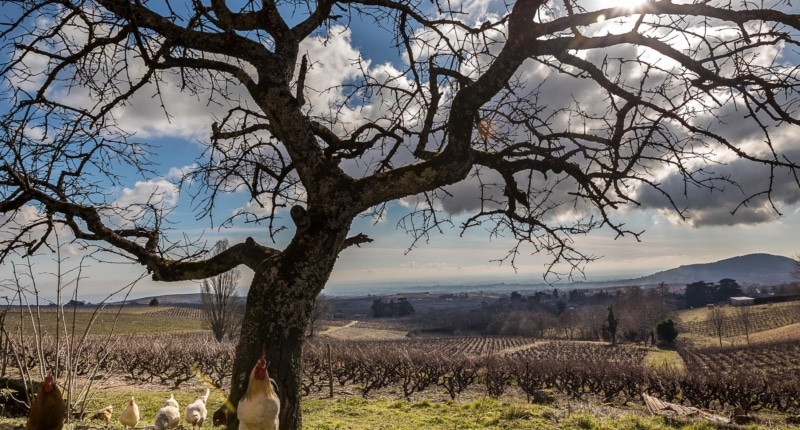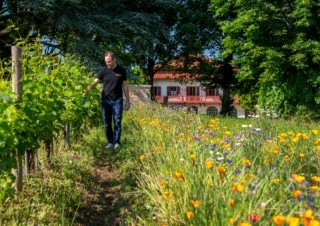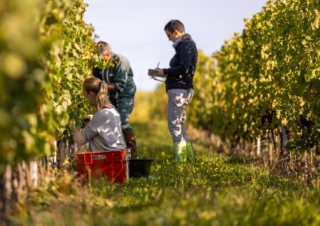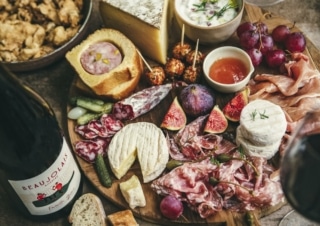As a pioneer, the Beaujolais winegrowing region did not wait for the various government initiatives to define sustainable environmental practices. As early as 1989, the first groups of enthusiastic winegrowers got together to study their vines and determine the most sustainable way to protect them. Winegrowers now work collectively on a new vision of agriculture: agroecology, aimed at achieving a high-performance production system with respect to environmental, economic and social aspects, while preserving natural resources. That means maintaining or reintroducing biodiversity throughout an estate, limiting inputs, preserving soil life and water quality, and restoring a diverse natural landscape.
The High Environmental Value (HVE) certification system is the result of the French Environment Round Table (Grenelle de l’Environnement). The voluntary commitment to the initiative leads to an estate being accredited. It identifies and promotes environmentally-friendly practices and focuses on four key topics: biodiversity, use of phytosanitary products, management of fertilisation and water resources. In 2020, there are over 200 HVE-certified vineyards in Beaujolais, making it one of the most active winegrowing regions for the accreditation.
Beaujolais is the region where Terra Vitis came into being back in 1998. It is an organisation that groups together winegrowers with high standards, motivated by their respect for nature and Mankind. In 2020, it counts a hundred or so members working in the Beaujolais vineyard, ranging from recently-established growers to major traditional estates, united around their choice for healthy, sustainable winegrowing. Terra Vitis is a low-input, integrated viticulture approach, currently recognised in France with a Level 2 environmental certification. As of 2020, the Terra Vitis specifications also encompass all the Level 3 environmental certification criteria equal to HVE.
In early 2020, there were over 150 wine estates in Beaujolais being managed organically or converted over. The European certification process promotes ecosystem balance in order to interfere as little as possible with nature. It prohibits the use of synthetic chemicals.
In addition, about ten Beaujolais growers have made a commitment to Demeter-certified biodynamic approaches. The Demeter certification advocates the use of biodynamic products that contribute energetically to the ecosystem balance in tune with cosmic cycles.
CSR commitment
Corporate Social Responsibility (CSR) is the response of companies committed to and acting in favour of sustainable development. It is defined by an international standard (ISO 26 000): the responsibility of a company with respect to its impacts and decisions on the environment and society expressed through ethical and transparent behaviour. CSR takes into account environmental issues as well as social (health and safety of employees, consumers and residents, etc.) and economic aspects (company sustainability, relations with suppliers and customers, links to the territory). A responsible company knows its stakeholders and acts with them to ensure sustainable development. In Beaujolais, several companies have made commitments. Some, like Château de l’Eclair, received recognition for their approach from an independent, external assessor, and have been awarded the CSR commitment label (Engagé RSE, in French).






